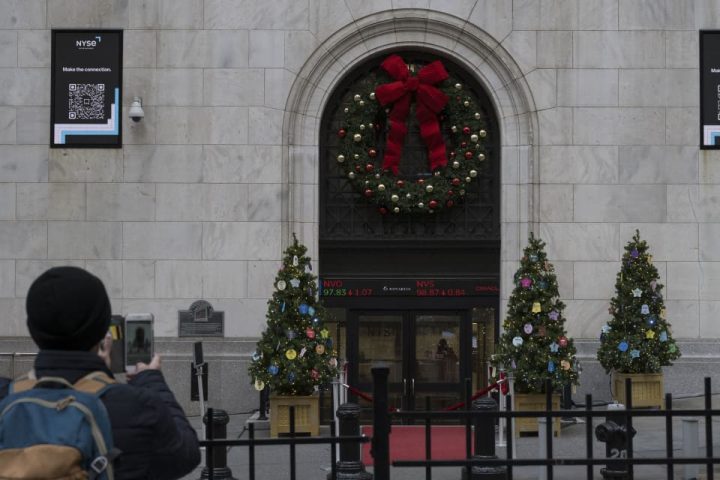Microsoft and Alphabet’s earnings results were a tale of two clouds. Microsoft’s Azure impressed where Google Cloud disappointed, and the reason behind the divergence looks to be in artificial intelligence.
Microsoft
(ticker: MSFT) and
Alphabet
(GOOGL), Google’s parent, compete directly in cloud computing, providing computing capacity remotely over the internet. The latest figures suggest Microsoft is winning market share from its rival.
Microsoft shares were up 3.9% in early trading on Wednesday at $343.45. Alphabet shares were down 8.6% at $126.90.
“We believe that heightened demand for AI services is making [Microsoft’s] Azure a significant share gainer amongst other hyperscalers,” wrote D.A. Davidson analyst Gil Luria in a research note on Wednesday.
Luria reiterated a Buy rating and $415 target price on Microsoft.
The companies differed in the breakdown of AI-related figures they were prepared to share. Microsoft disclosed the AI contribution to its cloud business, noting it represented three percentage points of Azure’s overall 28% growth in the September quarter from the same period a year earlier. That accelerated from 27% growth in the previous quarter.
That likely means that Azure AI services generated $388 million in incremental revenue from the same period a year earlier, according to Macquarie analyst Frederick Havemeyer. He raised his target price on the stock to $405 from $400 and kept an Outperform rating.
“Microsoft… showed clear evidence that generative AI hype is yielding material revenue without impacting its Intelligent Cloud gross or operating margins, which both expanded in the quarter,” Havemeyer wrote.
Alphabet on the other hand didn’t break out the AI contribution to its 22% rise in Google Cloud revenue, where growth slowed from the prior quarter. This fueled nervousness that Microsoft might be taking market share from Alphabet.
“While [Alphabet] management notes Google Cloud Platform continues to grow faster than reported results, we believe limited disclosures are creating concerns that Google lost share to Microsoft Azure,” wrote KeyBanc analyst Justin Patterson.
KeyBanc’s Patterson lowered his target price on Alphabet to $153 from $155 but kept an Overweight rating on the stock.
Market-share losses would be particularly concerning for Alphabet considering that Microsoft’s cloud business is already much larger.
The question now is whether Alphabet can convince the market its implementation of AI in general will be competitive with Microsoft’s OpenAI-powered offering. Alphabet CEO Sundar Pichai said the company was just laying the foundation of the next generation of AI models that it intends to launch throughout 2024 and that the company was seeing a lot of interest in the technology.
Wedbush’s Daniel Ives said the Alphabet stock drop was overdone, and that investors were placing too much importance on the cloud business, which accounts for only around 11% of revenue. He pointed instead to strength in the company’s core advertising business. He reiterated an Outperform rating and $160 target price on the stock.
Others took a less sunny view. Brian White at Monness Crespi Hardt lowered his rating on Alphabet to Neutral from Buy, with no target price. He cut his fourth-quarter earnings forecast for the company to $1.51 a share from $1.68, suggesting it is likely to fall short of the consensus forecast for $1.62 a share.
“The tone of the [Alphabet earnings] call was riddled with evasive commentary with no clear path forward during a period that increasingly demands major AI investments, combined with the risk of stronger competitors and a darkening macro environment,” White wrote.
Write to Adam Clark at [email protected]
Read the full article here







